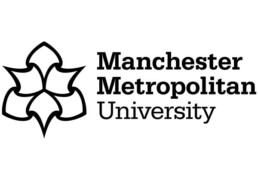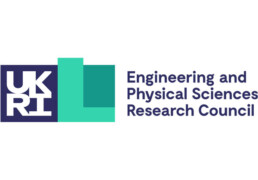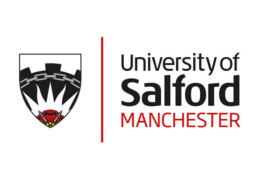Pod 3
Pod 3 focuses on “learning by doing” as PEAs and representatives from three traditionally marginalised communities coproduce and deliver a programme of attractive and inspirational public engagement activities for their communities.
Pod 3 focuses on “learning by doing” as PEAs and representatives from three traditionally marginalised communities coproduce and deliver a programme of attractive and inspirational public engagement activities for their communities.
In this project phase, coproduction skills will be put into practice. Supported by the project team, PEAS will coproduce a public engagement programme for their allocated community and deliver this programme over 6 months.
MMU PEAs in Pods | Programmes of Public Engagement
Between 2022 and 2025, Manchester Metropolitan University (MMU) teamed up with the social enterprise Noisy Cricket to train academics in collaborating more effectively with communities. This initiative involved early-career researchers from MMU, The University of Manchester, and Salford University, with a goal to connect with and engage communities in research focused on Artificial Intelligence (AI).
As part of the PEAs in Pods project, we developed three Public Engagement Programmes. These programs brought together academics—known as Public Engagement Ambassadors (PEAs)—and diverse communities across Greater Manchester. Together, they aimed to (1) raise awareness, (2) deepen understanding, and (3) encourage action on how AI can be used to benefit communities.
The three programmes designed and delivered by academics and communities include:
- Programme 1 | The Tatton – Raising Awareness of Artificial Intelligence in the Community
- Programme 2 | Inspire – The Peoples Charter for Artificial Intelligence
- Programme 3 | Back on Track and HI Future – Using machine learning to support people affected by homelessness in finding job opportunities that match their strengths.
Each programme had a budget of £7k from the PEAs in PODs project to develop the solutions that emerge out of co-production activities.
Click on each programme to find out more.
Please scroll down to read about our evaluation of the three programmes
through the eyes of community members and PEAS!
Programme 1 | Raising Awareness of Artificial Intelligence in the Community
Programme 2 | Inspire - The Peoples Charter for Artificial Intelligence
Programme 3 | HI Future
All Programmes | Evaluation
During the three programmes, the MMU project team captured reflections from community members and PEAS. This was to understand their learning journey of working together to co-create outputs that would have meaningful impact on communities, and to critically reflect on how involvement in the project was impacting them.
This process of embedded reflective activities – including creative surveys, reflective circles, mentoring and interviews – aided in highlighting emerging concerns or potential possibilities from working on the project.
Benefits and opportunities of working with communities
PEAS voiced the benefit of working in collaborative ways alongside communities to develop projects as these aligned with the wants and needs of a community, rather than being imposed by an external research agenda.
“It’s not just about you…if you give [the community] the chance to do the solution they want, they feel like they are part of the process and in that way your solution will be much more acceptable than the one which seems like it’s imposed on them” PEA, Training Session 2, Reflective Circle
In this way, PEAS felt assured that both the process of working together, and the outputs created from the project, were robust, held more ethical integrity, and reflected the wants and needs of the community itself:
“I experienced first-hand that community engagement for life-transforming research… enhances trust, novelty and original contribution to the pool of knowledge.” PEA, PEA Survey 2024
Many PEAs recognised that they had developed desirable skills in reflexivity, facilitation, community-engagement and communication and that this placed them in an optimal position for future opportunities to explore ethical, community-engaged research further.
They also felt that the benefited from positive experiences of building relationship and networks with the communities that they worked with.
Understanding the commitment and demands of working with communities
During their training programme PEAS expressed an awareness that conducting community engaged research would be more time consuming and personally demanding then other, lab-related work they had conducted before.
“The challenge is keeping up with the project, supporting ourselves and being able to support others in the team and in the community, to actually continue…to be sustainable in doing this work.” PEA Training POD 1
Typically, in STEM and data science, academics are situated as autonomous experts. The PEAS project was challenging as co-creating solutions is not driven by singular vision but by communication, compromise and eventual consensuswhich takes time, energy and relationships. However, the demands of the project had prepared PEAS to think effectively about how to make changes to their work in the future:
“I have now built PE (public engagement) into funding calls, with an appreciation of the time it takes! This is not something I would’ve readily done before the training and PEAS project.” PEA Survey 2024
Despite the challenges of managing time and relationships, there was some understanding that from these difficulties emerged hard-won successes:
“The work has been hard and time consuming but ultimately worth it. I think we have produced some excellent resources for the communities we have worked with, and it’s been very rewarding.” PEA Survey 2024
Future opportunities and the need for institutional support to pursue community-engaged research
Despite feeling that they were upskilled and equipped to pursue this work in the future, many identified a lack of knowledge and support within their existing academics departments for community engaged research and the necessity of ensuring there were ‘champions’ to educate department heads and provide grounded support.
PEAS observed the need to provide ongoing training and resources within universities to develop academics skills and capacities to conduct this work:
“[Training in community engaged research] is the type of ‘stuff’ that more and more people, whether they are early career researchers or established researchers, are going to have to get exposed to” PEA, Training POD 1
Most PEAs felt that community-engaged research was the future of STEM and data-driven research agendas. Many were excited by the networks and opportunities they had built in communities and expressed a desire to build in co-production and community-engaged principles into their future research practice:
“Being part of the project has opened doors for my future research and made me consider more strongly the role of public engagement and co-production in my future research.” PEA Survey 2024
Benefits and opportunities of working with community-engaged research
Community members were drawn to participate in the project for a number of reasons including the opportunity to learnmore about AI**,** to make a difference to their communities and to work with the University**.** The project offered a platform for community members both to contribute and to communicate their concerns and ideas.Community members noted how it was powerful to see:
‘“People listening to me.” Community Member
Many community members were aware of the fast-paced adoption of AI and felt that the project enabled them to have a proactive and engaged approach to it. They expressed optimism for the potential benefits it could bring, but also apprehension that it would leave disenfranchised and marginalised communities behind, with little concern for their welfare or inclusion:
“[AI] has been thrust upon us and we’ve not had a choice whether we want it or not. So, I’d rather learn, so I can tell people, inform people.” Community Member
The project provided opportunities to have engaged conversations and co-create relevant solutions whilst building community members confidence as ‘point people’ within their community to help others understand AI.
Addressing the obstacles and challenges of community-engaged research
Participants highlighted how university researchers’ willingness to come to community centres and meet with communities in their own spaces, made a difference to accessibility and willingness to be involved in the project.
Community members highlighted how considerations such as renumeration for travel beyond community centres (for example, coming to the University), renumeration for time and commitment to the project, food, drinks and a relaxed atmosphere as instrumental to their continued inclusion and commitment to the project.
This in turn helped to combat some of the threshold anxiety when working with University institutions:
“Previously the University…well, researchers…would have intimidated the community…I think the project being introduced [at the community centre] people have more of an inroad to being involved.” Community Member
Community members highlighted that occasionally there could be challenges around academic language and presentation, but that much of this was combated through discussion and relationship.
Relationships and knowledge exchange with early career researchers
The process of working together with PEAs was described as positive and beneficial, with community members expressing appreciation for the process of engaging together to understand the potential impacts of AI and to co-create solutions.
‘All of us trying to work together to understand each other…that is a beautiful thing.’ Community Member
Community members could see the benefit of collaborating together with University researchers and building deeper relationships with educational institutions, to help build momentum and voice on social issues that were affecting communities. Relationships, communication take time but result in better outcomes.
‘[Initially] I was not completely sure what was going on. But…I felt that yes, we really need somebody to help with this kind of thing because then they can take it to [other institutions] and say: ‘this is what we want.’ This is where you can…see the benefit of working with the universities to highlight different experiences.’ Community Member
Working with the University was a key draw for involvement in the project, and many community members have expressed a desire for projects to continue into new iterations or to be included in further calls for community-engaged projects.
Both community members and PEAs emphasised the importance of relationship building and how they learnt from each other throughout through the life course of the projects by engaging in respectful open dialogue where everyone’s opinions held weight.
The key is motivate co-inspire and form long lasting partnerships where all people feel valued and have a voice.







